Posted on 12/22/2021
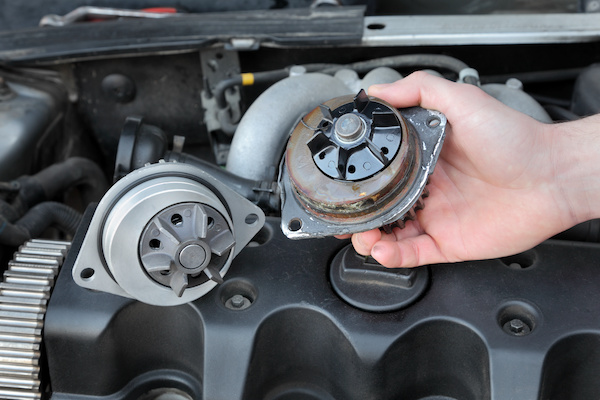
A water pump in the car actually helps keep your vehicle's engine cool while it's being driven. While it's not required to be replaced immediately, you also don't want to wait too long. So it's important that you look out for the following symptoms below that signal a failing water pump in your vehicle. What are some symptoms of a failing water pump? Knowing what to look for with a failing water pump is critical. Look for the following signs that you'll need to get the water pump replaced as soon as possible. Coolant Leaks This is one of the most noticeable signs that the water pump may or may not be failing. It usually leaves an orange or green puddle on the ground. To confirm that the water pump is failing, you can also check the oil with the oil dipstick. If it's frothy or thick chocolate, assume you have a water pump leak and get it looked at. Engine Overheats If your engine ... read more
Posted on 11/29/2021

Many of us tend to stay inside when temperatures drop, but the truth is there's a bunch of entertaining winter activities (both outdoors and indoors). While you may think it's too early to think about winter activities, the first snowfall is expected to take place as early as December in MD. Here are some fun winter activities to do this year! Build a snowman This is a classic activity for you and your family. All you have to do is gather a few things from around the house (a hat, scarf, and carrot), and you've got all you need to build a snowman! It's a fun way for your children to get creative and have a photo-op after! Have a snowball fight A snowball fight is a perfect activity to get the whole family moving, and who doesn't love a friendly competition? It can be as simple as throwing a few snowballs back and forth or involving forts, rules, and strategy. Go tubing or sledding You should take advantage of any nearby hills and head on over with your s ... read more
Posted on 10/22/2021
.jpeg)
Similar to engine oil, a transmission fluid leak is a serious matter. Transmission fluid is responsible for lubricating and cooling down your transmission parts. If the fluid is nearly empty (due to a potential leak) or the liquid itself is in terrible condition, it will suffer extensive damage. The reality is transmission repairs, rebuilds, and replacements are not cheap. This is why you should do everything you can as a responsible vehicle owner to keep up with your transmission fluid. How to Check Your Transmission Fluid Did you know that you can monitor the level and quality of the transmission fluid right from home? Some cars have a transmission fluid dipstick under your hood that is made to fit into your transmission pan. If you can find this dipstick, you can look at the fluid and ensure there is enough liquid in the pan at all times, just like you would with your engine oil. If the transmission fluid looks dark, thick, dirty, or has a burnt smell, it may be over ... read more
Posted on 9/27/2021
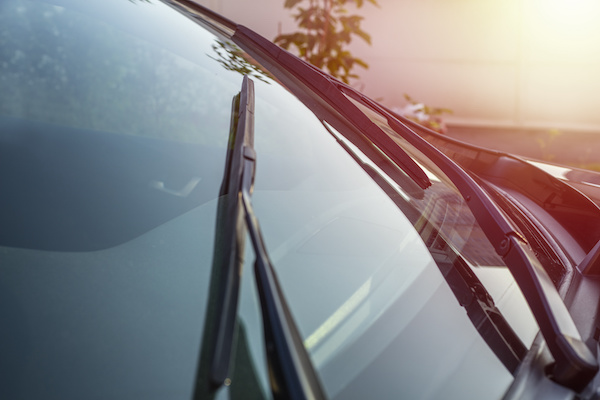
Struggling to see through your windscreen while driving in the rain or snow can be very aggravating and even stressful. If you start to notice large streaks or hear squeaks when you turn those wipers on, it may be time to swap out your wipers. We recommend installing new, high-quality wipers that are effective in wiping away rain, snow, fog, and other objects that may hinder your visibility. Your wipers are vital to ensure your safety on the road, so you should never delay replacing them. If you want to be extra cautious, your wipers should be replaced every six to twelve months, depending on usage, blade brand/quality, and the weather conditions in your location. What Are the Symptoms of Worn Wiper Blades? For the most part, you can make your judgments based on your senses regarding windshield wipers. Good, working windshield wipers should be able to clear water, snow, or slush on your windscreen without a problem. It should be a seamless process. Once your wiper blad ... read more
Posted on 8/23/2021
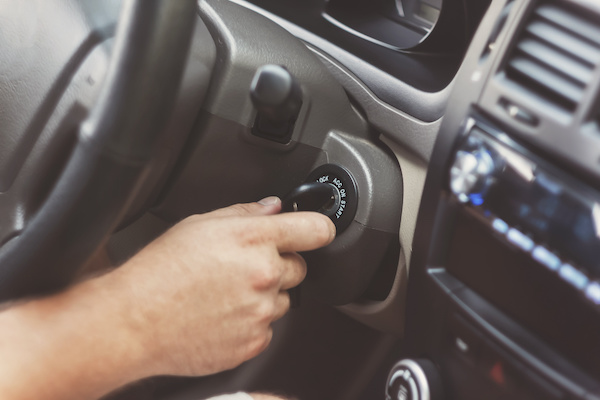
A tune-up can be more than regular maintenance: taking your car to a repair shop before serious issues arise can greatly extend the life of your car and how long your vehicle can stay on the road. However, it's not always obvious what kind of issues warrant a closer look by a professional. Here are some signs your vehicle needs to be taken into a repair shop: 1. The Car Sounds Like It Struggles During Acceleration This may seem obvious at first, but if a car is making loud knocking sounds when accelerating or on steep hills, it can be a sign your engine isn't as efficient as it could be. Similarly, if the car idles or accelerates with difficulty, it could be a spark plug failing to ignite. Taking your car for a tune-up may address this issue or point to a needed fix. 2. Gas Mileage Isn't What It Should Be Are you finding that you're filling up your gas tank more than you thought you would? Getting fewer mile ... read more
Posted on 7/21/2021
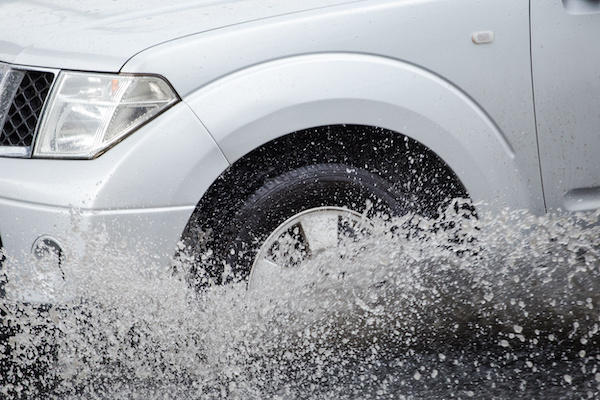
Have you ever lost control of your vehicle on a snowy, icy, or wet road? Speeding through light rain, snow, or ice can easily cause your vehicle tires to lose traction with the road. That is called hydroplaning. Hydroplaning happens when your vehicle's tires lose contact with the road and skim or glide across a wet surface instead. Loss of tire traction can result in unexpected accidents if your vehicle has an issue with steering, braking, or loss of vehicle control. According to specialists, the first several minutes of wet or rainy conditions are the most critical times to be careful. These conditions are more likely to cause hydroplaning than others, such as water, road debris, lubricants, and oils combined. If you are traveling at a speed of 35 miles per hour or more in wet road conditions, then you are more likely to hydroplane than others moving at a slower rate of speed. How to Prevent Your Car From Hydroplaning While we can't account for all driving c ... read more
Posted on 6/25/2021
.jpeg)
Your car fluids enable different vehicle systems to run smoothly and at maximum performance. Examples include the transmission, power steering, wiper, and brake fluids. As each fluid circulates in its respective system, its level and quality drop due to contamination, leading to various vehicle problems. However, these fluids require flushing at various intervals, and it's critical to know when to take the car to the technician for each flush. Flush the Following Fluids Regularly for Optimum Car Performance Engine Oil You can do an oil inspection using a dipstick. If the levels are below the specified margin or the color has turned to black, it's time to change the oil. Still, the interval for that is every 50,000-70,000 miles. Transmission Fluid The transmission fluid keeps the gears running smoothly, and you need to check it every time you have an oil change. The recommended interval for transmission flushes is 30,000 miles. Brake Fluid As the name suggests, this fluid ... read more
Posted on 5/27/2021
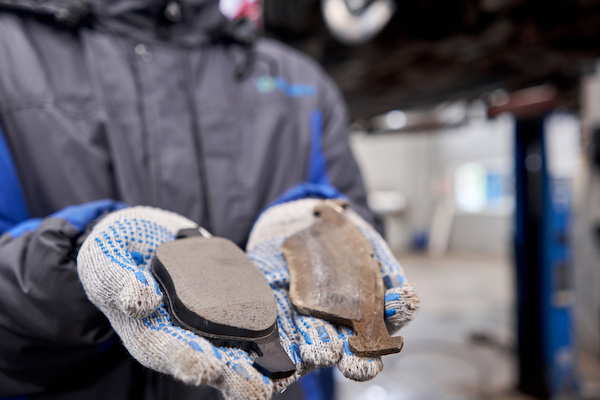
Every car consists of a number of parts and systems designed to keep the vehicle in great and reliable running conditioning. One of the most important safety and reliability systems is that of the braking system, designed to keep the vehicle driver, passengers, and everybody around the vehicle safe. This is done by ensuring that the vehicle has the ability to come to a full stop in a matter of seconds. One of the key parts of the braking system is the brake pads. The brake pads are the component that applies pressure and friction to the brake rotors in order to slow down and eventually fully stop the vehicle's wheels. Brake pads undergo stress every time you slow down or bring your vehicle to a halt, which causes wear and tear. For this reason, you want to stay on top of replacing the brake pads in order to keep your vehicle's braking system working in top condition. Brake pads should be replaced on average every 40 to 50 thousand miles, for best results. Ho ... read more
Posted on 4/26/2021
.jpeg)
The transmission system is responsible for gear shifting in your car. This makes the transmission system to be a very important component of your car since you need to change gears as you drive. Any problem with your transmission system needs to get sorted as fast as possible; otherwise, you may not be able to move. If you don't sort the problem with the transmission system promptly, the engine may develop other problems that will make your repair costs shoot. Here are the three transmission system problems you can't afford to ignore: Warning Lights When the Check Engine light comes on, you need to take it seriously. The Check Engine light shows that your car's computer has detected a problem with the car. The lights do not necessarily mean the problem is with your transmission system, but it's good to have an expert check your car to determine where the problem is. If it's from the transmission system, the mechanic will fix it. Even if it's ... read more